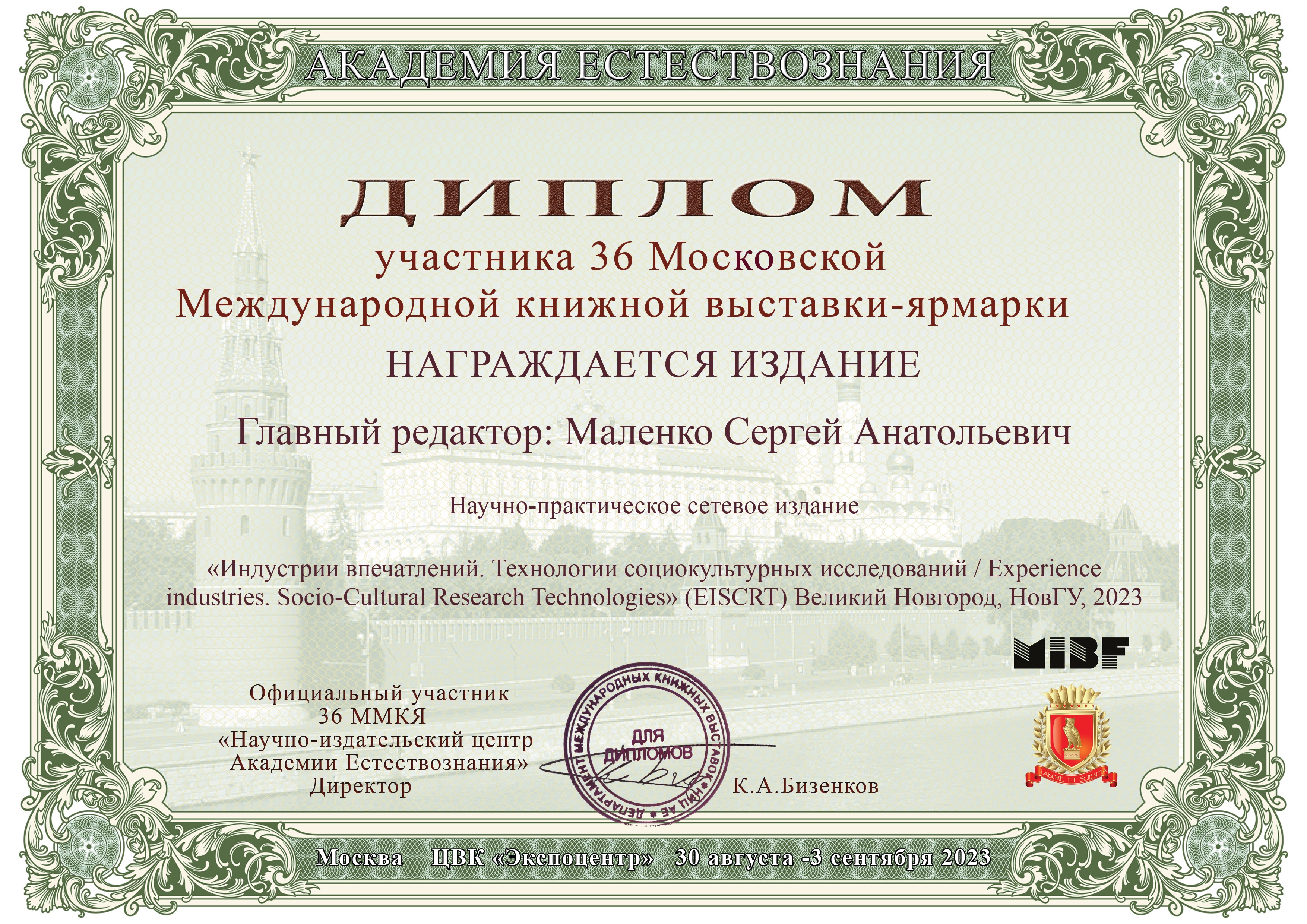ИНДУСТРИЯ ВПЕЧАТЛЕНИЙ КАК ПРОСТРАНСТВО АППЛИКАЦИИ «МЯГКОЙ СИЛЫ»
DOI:
https://doi.org/10.34680/EISCRT-2022-1(1)-117-136Ключевые слова:
«мягкая сила», лидеры мнений, теория двухступенчатого потока информации, социальное управление, массовая культура, киноАннотация
В статье рассматривается возможность использования инструментов «мягкой силы» в пространстве современных «культурных индустрий». Большинство исследователей заостряют свое внимание на критике массовой культуры, считая её слишком коммерциализированной, а потому транслирующей исключительно примитивный контент. Нами же предпринята попытка посмотреть на массовую культуру как на механизм невоенной агрессии в отношении определённой страны. В качестве инструмента имплементации «мягкой силы» выбрано кино, которое оказывает максимально возможное (в сравнении с другими видами искусства) эмоциональное воздействие на «реципиента» и, кроме того, внедряет в сознание зрителя определенные ценности, влияющие на всё «культурное ядро» общества. Агрессия против определенной страны с использованием инструментария «мягкой силы» будет нацелена на разрушение её культурного блока. С нашей точки зрения, целостность «страны» включает в себя три основных составляющих. Первый компонент (будем именовать его «народ») состоит из определенной совокупности людей, которые должны воспроизводить себя посредством удовлетворения разнообразных потребностей. Второй блок (условно назовем его «культура») должен обеспечивать бытие «страны» универсальными согласовательными критериями, которые позволяют разнородным элементам общества преодолевать свой индивидуальный, национальный, групповой и классовый эгоизм. Третий блок (обозначим его понятием «управление») отвечает за внедрение культурных норм, а также контролирует их соблюдение, что упорядочивает социальное бытие как таковое. Классические «горячие» войны обычно направлены на уничтожение первого элемента страны («народ») и на подрыв материального базиса общества. Так называемые «цветные революции», прежде всего, воздействуют на третий компонент – на «управление», с целью перехвата управленческого контура. Тогда как «мягкая сила», мобилизуя, в том числе и современную массовую культуру, стремится к ненасильственному внедрению в «культурное ядро» противника собственных идей и смыслов.
Для цитирования статьи:
Смирнов, В. А. (2022). Индустрия впечатлений как пространство аппликации «мягкой силы». Индустрии впечатлений. Технологии социокультурных исследований (EISCRT), 1 (1), 117-136. https://doi.org/10.34680/EISCRT-2022-1(1)-117-136








